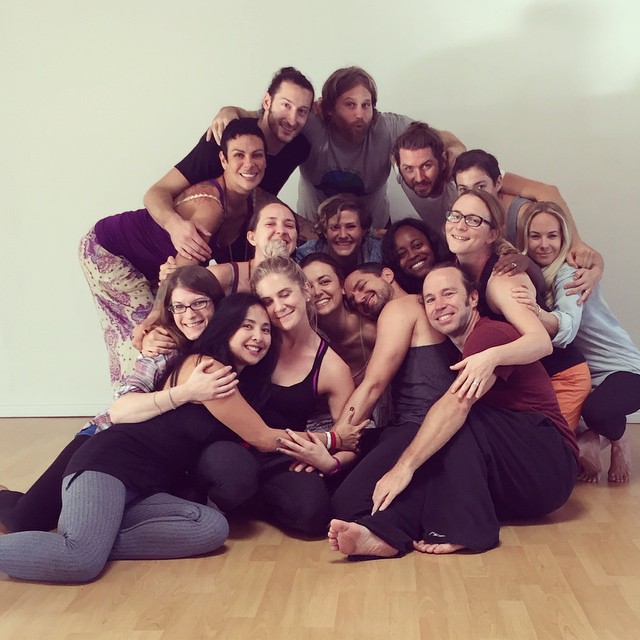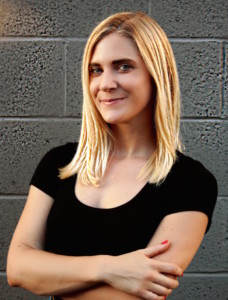In September 2015, I became a 500 hour registered yoga teacher. Before these 500 hours, I was never sure if teaching yoga was something I wanted to do since I already had a career that I was very happy and confident in. I am a social worker and I am currently on the tail end of receiving my doctorate in social work. In spite of hesitations, I decided to sign up for the The Mazé Method teacher training. Ultimately, I wanted to share with others something that was important to me in a way that was grounded, effective and safe. That decision was one of the best I’ve made in my life.
Since this decision, there are still many moments when I come into conflict with my roles– am I a PhD student or a yoga teacher? Is this a hobby? Is this distracting me from my ‘real’ career as a researcher? Who am I? Where do I belong?
I’m not sure the moment exactly, but one day I made the decision to stop thinking about my life in separate compartments. A social worker, academic and a yoga teacher are in a sense, one in the same. They are me. And something I have thought about a lot is how the lessons learned and the skills that I developed through becoming a yoga teacher have advanced me as a scholar and scientist.
Here are just a few highlights:
Don’t assume anyone knows what the hell you are talking about. For example, when you give an instruction in a yoga class the visual feedback will immediately tell you whether your audience understood it or not. When you say “open your heart” and the room projects a wildly different range of interpretations… Who is at fault? It’s you, the instructor. As an academic I am constantly sharing my work, theories, thoughts, musings and conclusions with different audiences. I can never assume that my audience, be it an individual or an auditorium, knows what I’m talking about. If you want people to understand you it’s important to know your audience and assess your audience’s knowledge. Learn to use feedback for what it’s intended for: improvement. Your main goal as an academic and a yoga instructor, is to transfer your ideas to another. You are ultimately responsible for making them as clear and accessible as possible.

Say less. The hardest part of teaching yoga is learning when to leave things unsaid. Learning to just shut up and stop instructing. Learning to let go of the word vomit. This is the same in academia. In my first year of my doctoral program I read a book on how to write academically and it said “Edit your writing and when you are done editing, edit it again. And then again.” Delete. Delete. Delete. This principle doesn’t only apply to writing manuscripts, but conference presentations, job interviews, conversation with colleagues, and in the classroom. A good yoga teacher is clear, concise and to the point. You only have so much time to get a student in a pose so you must choose your words wisely.
Get creative. As a yoga teacher you should be prepared for everything to go wrong. And when you are prepared for everything to go wrong, that one thing that you didn’t prepare for will happen. And it will be okay. Trust that you have the skill to deal with it and then get creative. Grab props. Ask for help. Wipe the slate clean and start over. You do this in academia as well. Nothing goes the way it is expected in research, in publishing, and in learning. You will reach that moment when everything you thought you were going to do with your life changes, and probably pretty quickly. But you adapt. You adapt because you want to or because you have to. And guess what? It’s okay. You know what to do. Embrace it.
There is always room for refinement. There is no perfect yoga pose. Sure, Instagram has ruined everything, but a true yogi knows that there is not an end goal to accomplish. Even as a yoga teacher, there is not a ‘perfect’ class. Sure there are bad ones, okay ones, and some great ones but a ‘perfect’ class doesn’t exist. Even in a room full of advanced students that need little assistance, a good yoga teacher should always be able to find a way to help students refine, develop, and improve. Or else why would students even show up? It’s the same in academia. There is no end goal. There is always room for refinement and to advance knowledge. You don’t quit when you get the job, the grant, the book deal, or tenure. Our role as academics is to constantly advance the field of knowledge. Even when it appears like you have accomplished it all, guess what… There will be room for refinement.
Your Kula (community) is everything. My life as a yoga teacher is about connecting with other like-minded and like-hearted people. Through the yoga Kula I have built, I have made life long friends and had many opportunities open up for me. Academia should be the same. No one works well in a vacuum. Friendship, partnership and community is the key to success in this field. Every industry is competitive. In academia, there aren’t enough jobs for graduating doctorates. There aren’t enough federal dollars for every research grant. However, it’s more advantageous and much more enjoyable to make friends than enemies in a competitive market. Take time to build and invest in your Kula!
Yoga saves lives. This is the most important thing I have learned. Yoga saves lives. Yoga saved me. It made me a better person and a better academic. It may not be obvious at first, but a consistent yoga practice will surely make an impact. I started practicing yoga regularly soon after I began my graduate studies at USC. I’ve been practicing for seven years now, and I’ve been through a lot. I’ve moved from the city I loved to an intimidating new place. I’ve had broken hearts. I’ve fallen in love and out of love. And in love again. I’ve been depressed and I’ve had my share of melt downs. Small ones and big ones. I’ve watched friendships fade away. I’ve had family members pass away. I’ve been there as family, friends and loved ones go through crisis. I’ve been sick. I’ve been criticized. I’ve had publications rejected. I’ve had grants rejected. I didn’t get the job. I didn’t get the award. Yoga didn’t get me through all of this. I got me through all of this, but yoga was always there. It’s what I did. It kept me grounded; it slowed me down. It helped me burn off steam. It gave me the support, the community and the self-love I needed to get through everything. Yoga gave me the clarity that I needed to survive the past seven years. It continues to give me the comfort that I will get through what comes next. Without yoga I wouldn’t be where I am now. Practicing yoga made me the best version of myself. Teaching yoga has helped me find my voice, find my vision and find my seat as an academic and leader.
 Today’s blogger, Robin Petering, is a Los Angeles based social worker, yoga teacher and a The Mazé Method Apprentice.
Today’s blogger, Robin Petering, is a Los Angeles based social worker, yoga teacher and a The Mazé Method Apprentice.
Robin Petering, MSW, is a PhD Candidate at the University of Southern California School of Social Work (USCSSW). She obtained her Masters of Social Work in 2011 from the Luskin School of Public Affairs in the University of California Los Angeles. Although Robin’s primary role is a social scientist, she is committed to bringing yoga to underserved populations. She currently teaches multiple yoga workshops agencies serving individuals experiencing homelessness or housing insecurity across Los Angeles and is continuously expanding this endeavor. In the future, she plans on designing her own curriculum for training yoga teachers to work with unique populations.
Comments are closed.
Receive rare news and yoga content from us.
"*" indicates required fields